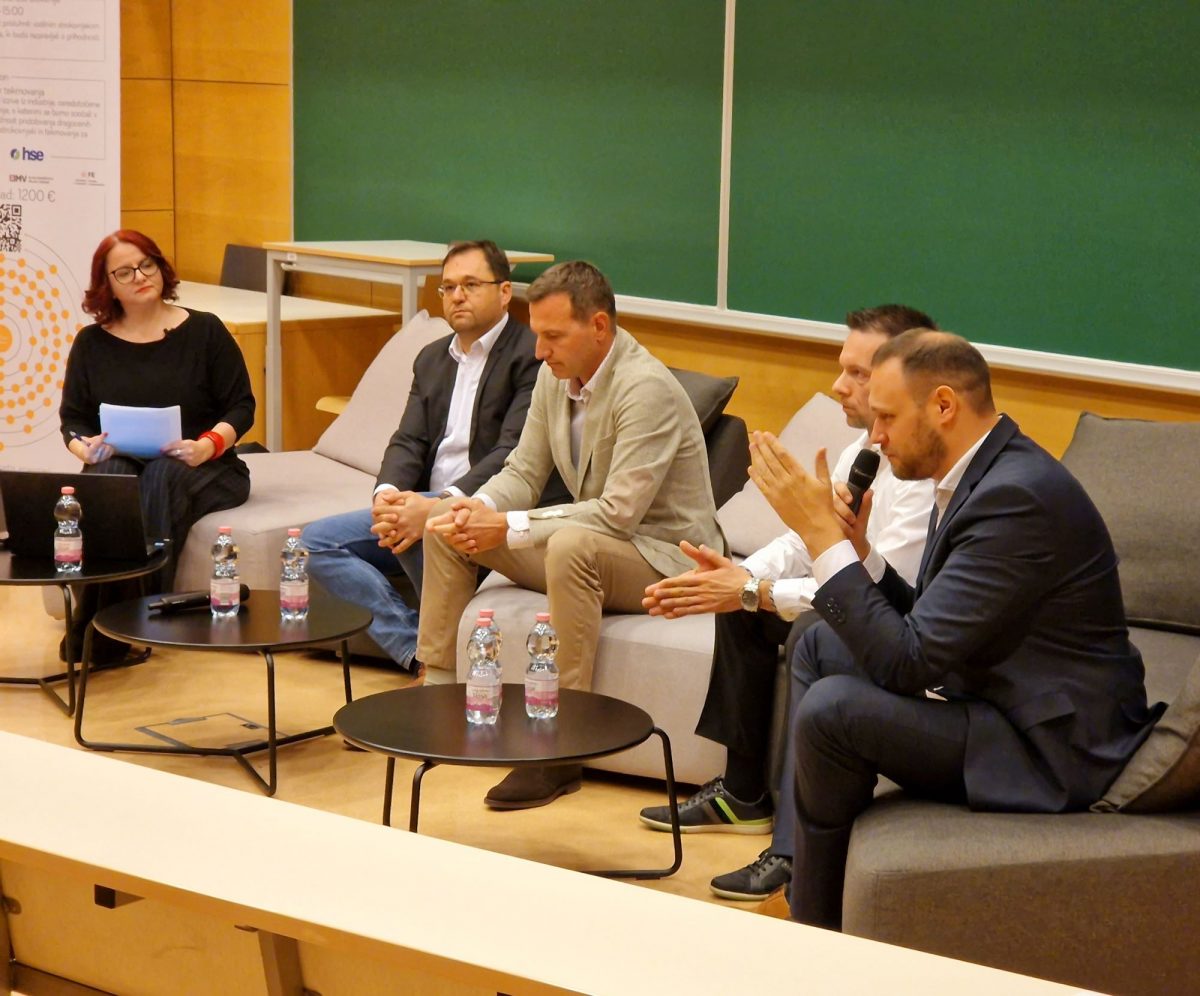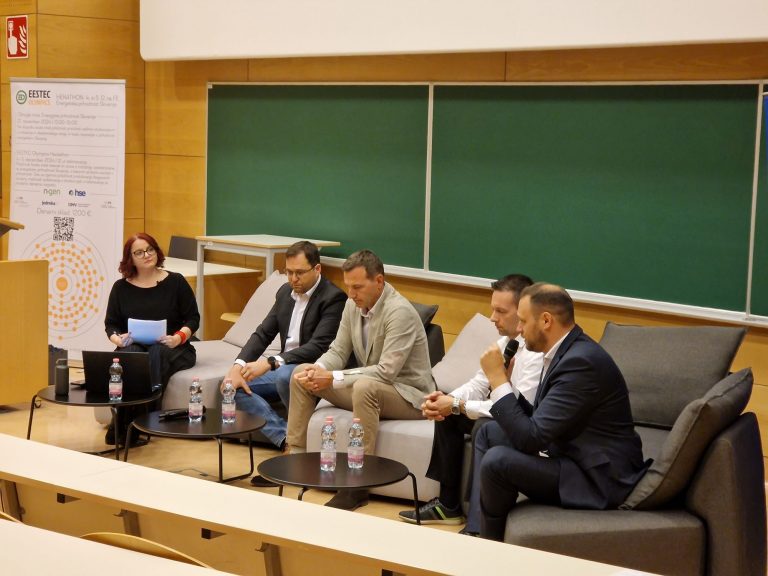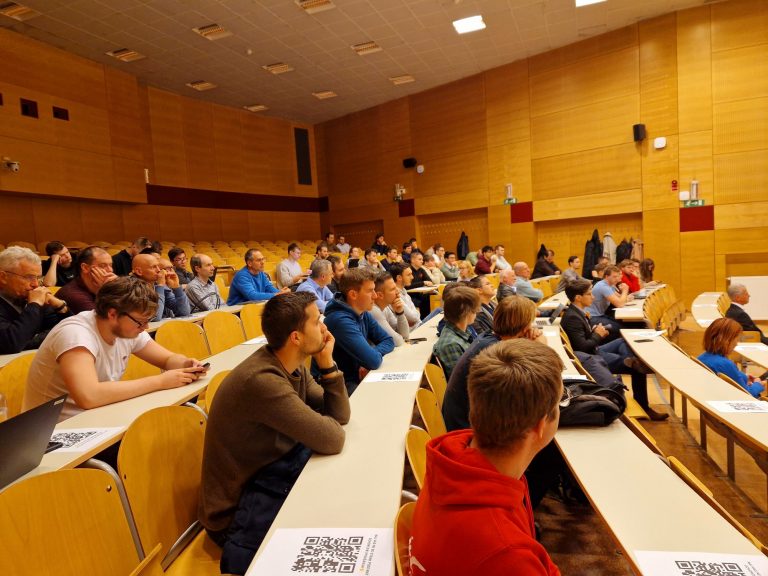
Roundtable on the Energy Future of Slovenia
What: Roundtable on the Energy Future of Slovenia
Where: Faculty of Electrical Engineering, Ljubljana
When: 21st of November 2024

On November 21, the Faculty of Electrical Engineering hosted a roundtable discussion on Slovenia’s energy future, bringing together esteemed experts from various energy fields. The event was organized as part of the EESTEC OLYMPICS under the auspices of the EESTEC association and addressed the key question: Should Slovenia build a new nuclear power plant?
The discussion featured Mr Miran Kavrečič, Head of Development Analytics at HSE; Mr Boštjan Bandelj, Director of Belektron d.o.o. and co-owner of nGEN; Mr Igor Podbelšek, Head of the Department for System Operation and Management at EIMV; and Dr Tomi Medved, Head of the Laboratory for Energy Policy (LEST) at the Faculty of Electrical Engineering. Ms. Tamara Langus, editor of the portal Jedrska.si moderated the conversation.
The discussion highlighted the key challenges faced by Slovenia’s energy sector and emphasized the need for a clear vision and long-term strategy. The speakers touched on topics such as spatial planning for energy sources, investments in infrastructure, ensuring a reliable energy supply, implementing the green transition, and aligning Slovenia with broader European decarbonization goals.
Throughout the discussion, the speakers’ perspectives intertwined. Miran Kavrečič emphasized the importance of environmental protection and the potential of photovoltaics as a significant renewable energy source. Boštjan Bandelj stressed ensuring a reliable energy supply at affordable prices for Slovenian consumers. Igor Podbelšek highlighted the need for alignment with European goals and compliance with EU regulations while pointing out the complexity of managing natural resources and the professional responsibility of experts in designing and developing the energy system. Tomi Medved underscored the critical importance of focusing on smart grids and the integration of smaller, diverse energy sources, which are expected to play an increasingly significant role in the future.
The discussion also sheds light on broader challenges in implementing new technologies. The speakers noted that such technologies require time for development and adaptation. Recognizing the “teething problems” of new systems is essential for their introduction, and according to the speakers, a deliberate and professionally managed process is necessary, avoiding hasty and campaign-driven actions. The need to mobilize private capital for the green transition was also emphasized, with the importance of providing investors the opportunity to choose the technologies and sources in which they invest.
The closing remarks focused on flexibility, which the speakers identified as a key opportunity both within the energy sector and more broadly. They argued that flexibility will play a crucial role in addressing future challenges, and the ability to manage it effectively will be equally important. In the end, the speakers encouraged students with an inspiring message: “Energy is sexy. Explore it.”

